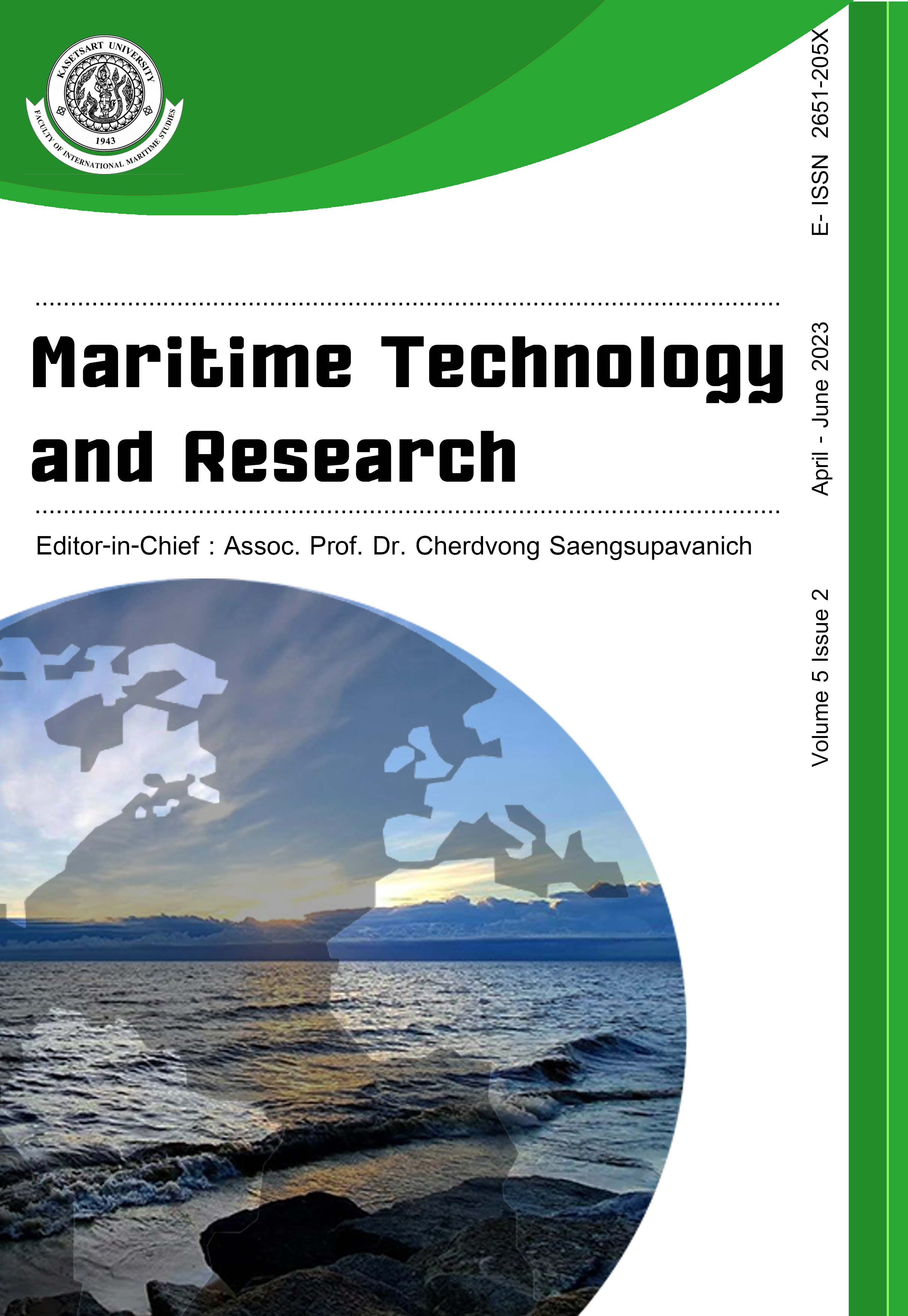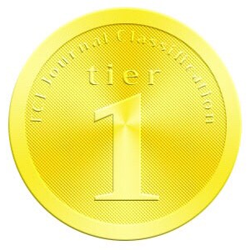Teaching marine engineering terms through online methods in maritime training courses
DOI:
https://doi.org/10.33175/mtr.2023.261340Keywords:
Marine engineering terms, Online technology, Foreign language competence, Terminological componentAbstract
Verbal communication is an integral part of seafarers’ professional activity and a compulsory condition of vessels’ safety, the prevention of marine environment pollution, the fulfillment of international and national legislation in the field of sea transport, and the organization and management of sea transport traffic involving multinational crews. The present study contributes to the resolution of professional communication linguistic support problems within the framework of the marine engineer’s activities. Additionally, it ensures safety at sea by developing the terminological component of the foreign-language competence of marine engineers. The purpose of the research presented in this article is to identify patterns of teaching the English maritime engineering term system used in oral professional communication and technical documentation engaging the Moodle Platform. The concept of marine engineering terminology, as well as the principles of distinguishing it from a more general concept of «maritime terminology», was considered in order to achieve this goal. The article suggests a combination of the most efficient Moodle tools that can be used to develop trainees’ specific terminological competence.
------------------------------------------------------------------------------
Cite this article:APA Style:
Smirnov, I.O., Dokuto, B.B., & Kondratiev, A.I. (2023). Teaching marine engineering terms through online methods in maritime training courses. Maritime Technology and Research, 5(2), 261340. https://doi.org/10.33175/mtr.2023.261340
MDPI Style:
Smirnov, I.O.; Dokuto, B.B.; Kondratiev, A.I. Teaching marine engineering terms through online methods in maritime training courses. Marit. Technol. Res. 2023, 5(2), 261340. https://doi.org/10.33175/mtr.2023.261340
Vancouver Style:
Smirnov IO, Dokuto BB, Kondratiev AI. (2023). Teaching marine engineering terms through online methods in maritime training courses. Marit. Technol. Res. 5(2): 261340. https://doi.org/10.33175/mtr.2023.261340
------------------------------------------------------------------------------
Highlights
- A comprehensive analysis has allowed identifying differences in the functioning of ship engineering terms in technical documentation and oral professional communication
- The elements of this terminological system under analysis form hierarchical paradigms
- The functioning of ship-engineering terms in professional communication is complicated by the presence of synonyms within the terminological system and pseudo-international vocabulary
- Marine engineering terms can be successfully taught through a combination of several Moodle instruments, which enables trainees to conduct comprehensive structural-semantic comparative analysis of the English ship engineering terminological system
References
Anderson, T. (2004). The theory and practice of online learning. 2nd eds. AU Press, Athabasca University.
Bañados, E. (2006). A blended-learning pedagogical model for teaching and learning EFL successfully through an online interactive multimedia environment, University of Concepción. CALICO Journal, 23(3), 533-550. http://dx.doi.org/10.1558/cj.v23i3.533-550
Bošković, V., Gajić, T., & Tomić, I. (2014). Moodle in English language teaching (pp. 480-483). Serbia: Sinteza Singidunum University.
Chen, X. I., & Xiangen, B., & Xiao, Y. (2017). The application of e-learning in maritime education and training in China. International Journal on Marine Navigation and Safety of Sea Transportation, 11, 163-168. http://dx.doi.org/10.12716/1001.11.02.19
Dougiamas, M., & Taylor, P. (2003). Moodle: Using learning communities to create an open source course management system. In Proceedings of the World Conference on Educational Multimedia, Hypermedia and Telecommunications. Waynesville, NC: Association for the Advancement of Computing in Education.
Erdogan, O., & Demirel, E. (2017). New technologies in maritime education and training, Turkish experiment. Universal Journal of Educational Research, 5(6), 947-952. http://dx.doi.org/10.13189/ujer.2017.050606
Galić, S., Lušić, Z., & Stanivuk, T. (2020). E-learning in maritime affairs. Journal of Naval Architecture and Marine Engineering, 17(1), 38-50. https://doi.org/10.3329/jname.v17i1.42203
International Maritime Organization. (2015). Model Course 3.17. Maritime English (pp. 1-228). London, UK: International Maritime Organization.
International Maritime Organization. (2018). STCW: Including 2010 Manila amendments: STCW convention and STCW code: International Convention on Standards of Training, Certification and Watchkeeping for Seafarers. London, UK: International Maritime Organization.
Ishida, S., Yanagisawa, O., Murakami, T., & Magallon. J. (2019). Maritime English Education with collaboration between Maritime Technology and teachers of General English in Japan (pp. 79-89). In Proceedings of the International Maritime English Conference 31. Åland Islands, Finland.
Latu, M. N. (2015). Nomination in developing terminological systems (pp. 1-192) [Nominatsiya v razvivayushchikhsya terminologicheskikh sistemakh] (in Russian). Monography. Pyatigorsk: SNEG.
Logie, C. (2019). My practice: English eLearning course for engineers at elementary language level (pp. 212-214). In Proceedings of the International Maritime English Conference 31. Åland Islands, Finland.
Mironenko, A., & Mironenko, E. (2019). E-Thesaurus design principles on the basis of Maritime Pseudo-Equivalent Terminology (pp. 111-122). In Proceedings of the International Maritime English Conference 31. Åland Islands, Finland.
Pazaver, A. (2019). Education for sustainable development and general Maritime English (pp. 160-170). In Proceedings of the International Maritime English Conference 31. Åland Islands, Finland. https://doi.org/10.1177/0843871418821325g
Tchkonia, N., Kalandadze, E., & Dolidze, N. (2019). Teaching Maritime English with innovative technologies (pp. 46-51). In Proceedings of the International Conference on New Trends in Social Sciences. Barcelona, Spain. https://doi.org/10.33422/ntss.2019.08.492
Yarovaya, L. V. (2005). Russian Maritime Terminology of navigation (pp. 1-200). [Russkaya morskaya terminologiya sudovozhdeniya] (in Russian). Odessa, Фенiкс.
Yurzhenko, A. Y. (2019). An e-course based on the LMS Moodle to teach “Maritime English for professional purpose”. Information Technologies and Learning Tools, 71(3), 92-98. http://dx.doi.org/10.33407/itlt.v71i3.2512
Zaitseva, R. G. (1989). Teaching professional dialogic speech in English at senior courses of higher maritime schools (pp. 1-16) [Obusheniye professionalnoy dialogicheskoy rechi na angliyskon yazyike kursantov starshykh kursov vysshikh morekhodnykh uchilittcsh] (in Russian) (Dissertation of the Candidate of Pedagogical Sciences). Moscow: IPSU.
Downloads
Published
Issue
Section
License
Copyright (c) 2022 Maritime Technology and Research

This work is licensed under a Creative Commons Attribution-NonCommercial-NoDerivatives 4.0 International License.
Copyright: CC BY-NC-ND 4.0








